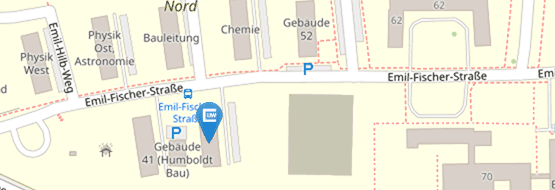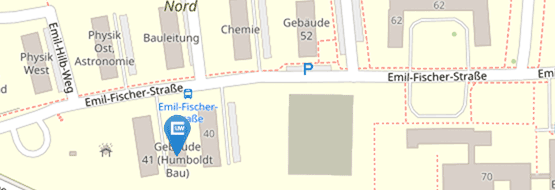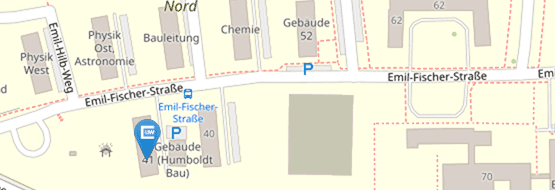Projects
Current and Recent Scientific Projects:
1. Controllability and Optimal Control of Interacting Quantum Dynamical Systems
Investor: DFG He1858/13-1
Principal Investigators: Alfio Borzi, Uwe Helmke
Status: ongoing
Duration: 2012-2016
Summary:
Optimal control of complex high-dimensional quantum systems poses new challenges for systems and control theory. This issue is of paramount importance for the development of future key technologies, such as quantum computing, quantum communication and the manipulation of nanosystems. New challenges arise if the interaction structure between such systems is fully taken into account to enable efficient optimal control strategies. This research project aims at achieving a fundamental understanding of controllability properties and optimal control strategies for finite-dimensional interacting quantum dynamical systems. For this purpose, techniques from nonlinear control, Lie group theory, and optimization on function spaces will be combined in an innovative way.
2. Parametric Model Reduction
Investor: Fraunhofer-Institut für Techno- und Wirtschaftsmathematik Kaiserslautern (ITWM)
Principal Investigator: Uwe Helmke
Status: finished
Duration: 01.04.2011 - 31.03.2012
Summary:
Die numerische Simulation großer vernetzter Regelungssysteme erfordert meist eine Modellreduktion auf ein kleineres System, um Sensitivitäten der System- und Kopplungsparameter effektiv bestimmen zu können. Bekannte Modellreduktionsverfahren (balanciertes Abschneiden; Interpolationsverfahren; Krylovmethoden) berücksichtigen leider nur unzureichend die unterschiedlichen Sensitivitäten der Systemparameter und erlauben daher keine qualitativ hochwertige Simulation der Parametereffekte. In diesem Vorhaben sollen erstmals bekannte Methoden zur Berechnung sensitivitätsoptimaler Realisierungen (Anderson, Gevers, Helmke, Moore) in Verbindung mit adaptiven Trackingverfahren (Newtonverfahren auf Mannigfaltigkeiten) weiter entwickelt werden, um so zu neuen Modellreduktionsverfahren zu gelangen, die es ermöglichen, Parametersensitivitäten besser darzustellen.
3. Geometric State Estimation Algorithms for Mechanical Systems
Investor: IFZM and ANU Australia
Principal Investigators: Uwe Helmke, Jochen Trumpf
Status: ongoing
Duration: February 2014 - December 2016
Summary:
State estimation from uncertain measurements is one of the fundamental problems in system theory. Effective control of mechanical systems depends on the availability of high-quality state estimates and control performance directly reflects fidelity of these estimates. This project aims at the development of new state estimation schemes for general mechanical systems using a deterministic and geometric approach to modeling uncertainty and system structure. This approach has been shown to outperform classical stochastic filters such as the MEKF in the attitude estimation problem for unmanned aerial vehicles. Similar improvements will be achieved in the general case.
4. Geometric Methods for Computer Vision and Control
Investor: DAAD, Hochschuldialog mit Südeuropa
Principal Investigators: Uwe Helmke, Knut Hüper
Status: finished
Duration: 23.09. - 31.12.2013
Summary:
Interdisziplinäres Forschungsprogramm gemeinsam mit ISR, Coimbra, Portugal und Lehrstuhl II, aus den Bereichen Computer Vision und Kontrolltheorie mit Schwerpunkt auf geometrischen Methoden. Dies beinhaltet Segmentierung, Interpolation und Filtern, aber auch Regressionsanalyse auf differenzierbaren Mannigfaltigkeiten.
5. Control of Multi-Agent Formations
Investor: DAAD Go8 (Australia-Germany)
Principal Investigators: B.D.O. Anderson (ANU), Uwe Helmke
Status: started
Duration: 01.01. 2015. - 31.12.2016
Summary:
DAAD Go8 Kooperationsprojekt mit der Forschergruppe von B.D.O. Anderson, Australian National University, Canberra, Australien. Dies dient insbesondere der Förderung des Austausches von Nachwuchswissenschaftlern der Mathematik und Ingenieurwissenschaften zwischen Würzburg und Canberra. Differentialgeometrische Lösungsansätze zur Regelung von Multiagenten Formationen werden entwickelt.




